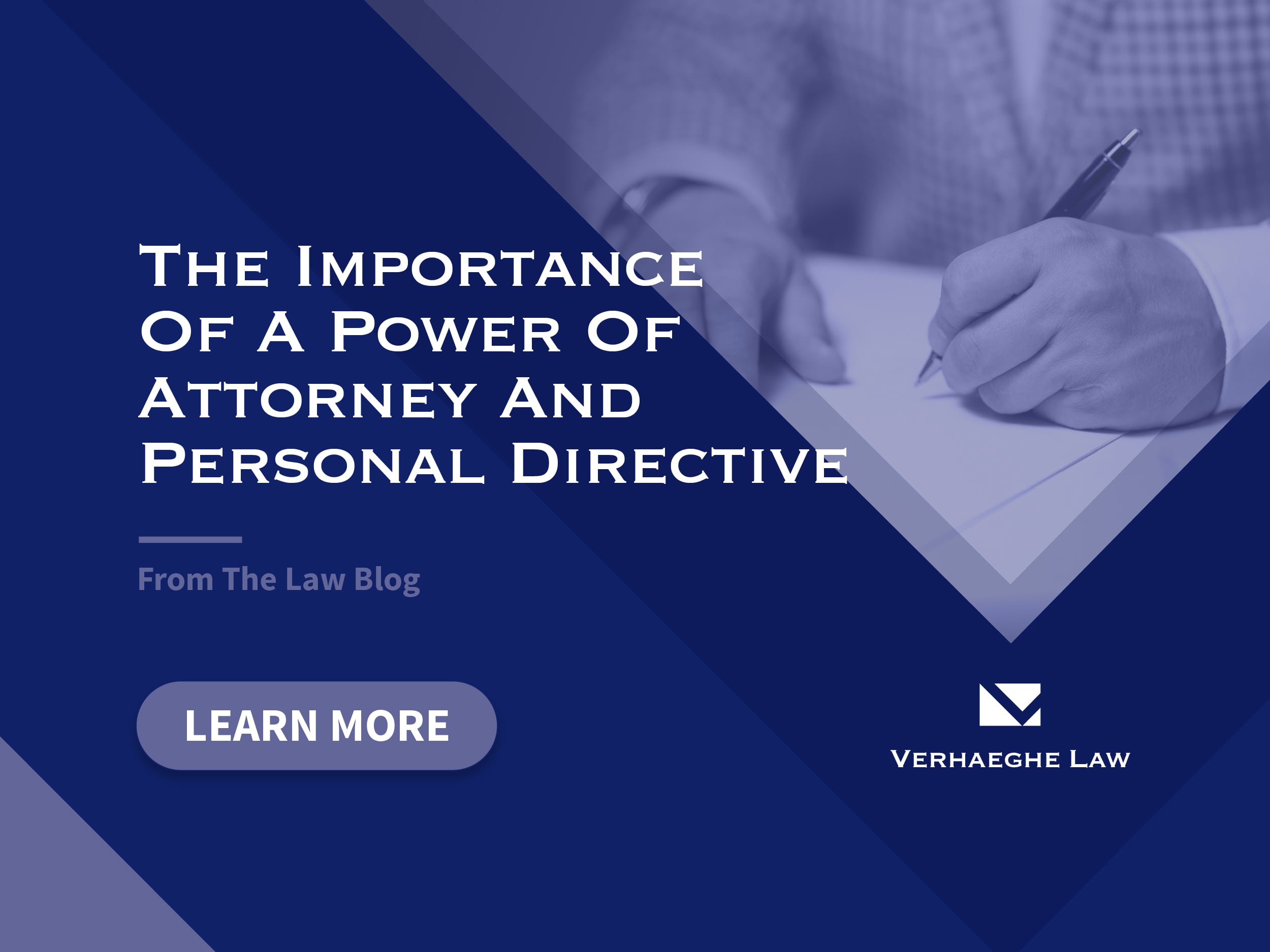The Importance Of A Power Of Attorney And Personal Directive

You may be aware that you should prepare a will in order to protect your family from uncertainty upon your death. But do you know that an enduring power of attorney and a personal directive are equally important?
Our Edmonton estate lawyers can help you to protect your family and will fully explain the importance of a power of attorney and personal directive, contact our team today.
Enduring Power Of Attorney
The enduring power of attorney grants a specific person the authority to make financial decisions for you. You can decide when it comes into effect (either immediately or if/when you lose capacity). Capacity, or mental capacity, means the ability to understand what property and financial obligations you have, what authority you have given to your attorney and the risks involved.
If you want your power of attorney to come into effect when you lose capacity, you must indicate who can make a written declaration that you have lost capacity (for example, your family physician). If you neglect to include such a statement, it will be necessary for your attorney to obtain written declarations from two different doctors in order to prove that you have lost capacity.
Once your power of attorney comes into effect, it continues until:
- either you or your attorney die (you can name an alternate attorney, who can take over in the event your attorney can no longer continue to act)
- you revoke it
- the court cancels it or makes an order for trusteeship.
The power of attorney gives your attorney the ability to do your day-to-day banking and pay your bills. Depending on what financial interests you have, your attorney may also need to be responsible for:
- dealing with real estate interests
- filing tax returns and making tax-related decisions
- dealing with a business (either keeping it running, selling it or winding it up)
- using your financial assets to support you and your family
- hiring and getting advice from lawyers, accountants or other professionals as necessary.
When choosing an attorney, keep in mind the extent of the job you are giving them and try to determine whether they have the time and the ability to do it well.
Personal Directive
A personal directive is similar to a power of attorney, but instead of financial matters, it covers personal matters. Your personal directive gives a specific person, known as your agent, the ability to make personal decisions for you in the event that you become unable to make them yourself. Personal decisions may include:
- where you live
- medical treatments and personal care that you receive
- who cares for your minor children
- other choices about what you do on a daily basis.
If you like, you can include specific instructions for your agent about what you would or would not wish to happen in specific circumstances, but it is not necessary.
What Happens If You Do Not Have A Power Of Attorney Or Personal Directive?
If you don’t have a power of attorney or personal directive and you lose capacity due to an illness or accident, your family may need to apply to the court to have them assign:
- a trustee to make financial decisions, and
- a guardian to make personal decisions.
Court applications cost money and can take time, and your family might be in a bad financial situation if they don’t have access to sufficient funds to meet all of your ongoing obligations. If you need emergency medical treatment, the hospital may ask a relative to make those decisions on your behalf and they may not ask the person you would have picked to be your agent.
Contact Verhaeghe Law Office’s Edmonton Estate Lawyers Today For Legal Advice On Estate Administration in Alberta
Verhaeghe Law Office’s team of estate lawyers are prepared to assist you with your estate administration legal matters. Book a consultation with our team of Edmonton estate lawyers today. Or give us a call by dialling (587) 410-2500.
*Disclaimer: Please note that this article provides a general overview of the legal topic, and is not intended to constitute legal advice. For legal assistance with estate administration matters, please consult an Edmonton estate lawyer.
